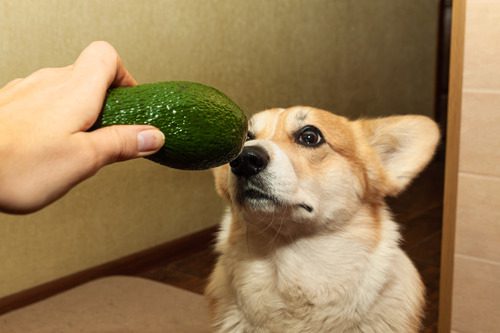Can Dogs Eat Avocado?
As pet owners, it’s common to wonder which foods from our tables are safe to share with our dogs. Avocados, with their rich, creamy texture and nutritional benefits, might seem like a healthy choice. However, determining whether dogs can eat avocado involves understanding the potential health benefits as well as the risks. This blog post discusses the topic, providing Amesbury pet owners with the insights needed to make informed decisions about feeding avocados to their dogs. If you have any specific concerns or need personalized advice, reach out to Merrimac Valley Animal Hospital at (978) 388-3074.

Nutritional Benefits of Avocado for Dogs
The Good: Healthy Fats and Nutrients
Avocados are rich in nutrients that can benefit dogs, including healthy fats, vitamins A, E, and B6, and fiber. These components can help maintain a shiny coat, healthy skin, and proper digestion. Additionally, the fatty acids in avocados can support the immune system and reduce inflammation.
The Risks: Persin and Choking Hazards
However, avocados contain a substance called persin, which can be toxic to some animals. While dogs are less sensitive to persin, it’s important to understand the potential risks. The bigger concerns often involve the avocado pit and skin, which are choking hazards and can cause blockages in the digestive tract.
Potential Health Risks When Dogs Eat Avocado
Understanding Persin Toxicity
The persin found in avocados can vary in concentration depending on the variety and ripeness of the fruit. It’s primarily found in the leaves, skin, and pit of the avocado, rather than the pulp itself. Symptoms of persin poisoning in dogs can include gastrointestinal upset, vomiting, and diarrhea.
Choking and Internal Blockages
The avocado pit is large, hard, and perfectly sized to cause obstructions in a dog’s esophagus, stomach, or intestinal tract. If your dog swallows the pit, it can lead to serious complications, including surgery to remove the blockage. Always keep avocados out of reach of your dogs to prevent these risks.
Safe Ways to Feed Avocado to Dogs
If you choose to feed your dog avocado, it is crucial to do so safely to avoid any health issues. Remove the skin and pit, and only offer the ripe flesh of the avocado in small amounts as a treat. This minimizes the risk of persin exposure and prevents choking.
Recommended Portions and Frequency
Introduce avocado into your dog’s diet gradually. Start with small amounts, such as a few small pieces, to see how your dog reacts. Not all dogs digest avocado well, so it’s important to observe your dog for any signs of discomfort or allergic reactions.
Alternative Safe Snacks for Dogs
If you’re looking for safer snack options for your dog, consider fruits and vegetables that are known to be safe, such as carrots, apples (without seeds), and blueberries. These provide similar nutritional benefits without the risks associated with avocados.
Weighing the Risks and Benefits of Avocados for Dogs
While avocados can offer some health benefits to dogs, they also present significant risks. For pet owners in Amesbury, it’s essential to weigh these factors and consult with a veterinarian before introducing new foods into your dog’s diet. If you have questions about safe dietary options for your dog, or if your dog has consumed avocado and is showing signs of distress, contact Merrimac Valley Animal Hospital at (978) 388-3074 for expert advice and support.
Recent Posts
About Us
Merrimac Valley Animal Hospital had humble beginnings in 1968. Dr. Walter Brown opened the animal hospital in a garage next to his home near the current hospital and operated out of this small space until the current building was built in 1969.
